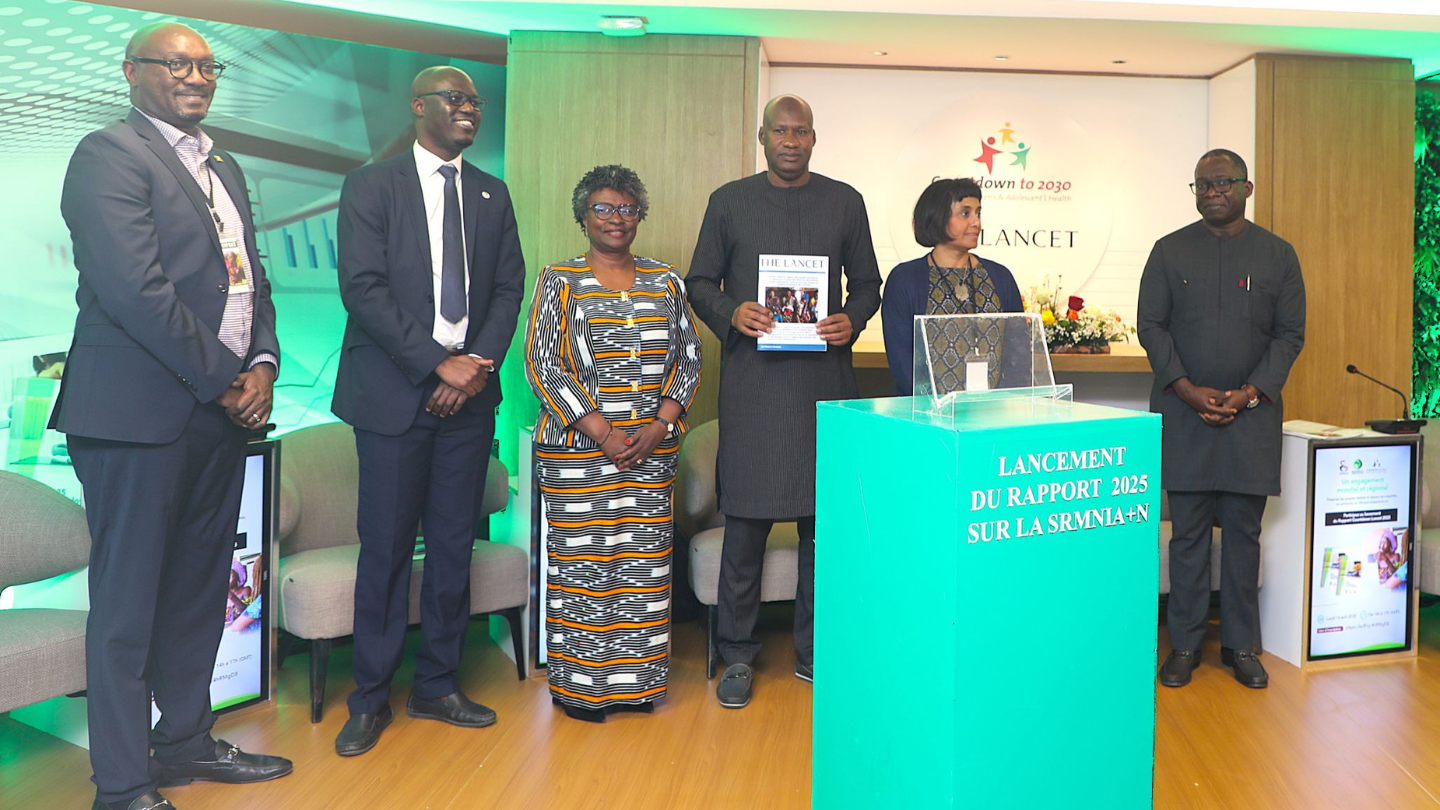Dakar, Senegal – April 14, 2025 — In a landmark event held in Dakar, the 2025 Countdown Lancet Report was officially launched, marking a significant step forward in tracking progress toward reproductive, maternal, newborn, child, and adolescent health and nutrition (RMNCAH-N) globally. Organized in partnership by The Lancet, the Countdown to 2030 Initiative, the African Population and Health Research Center (APHRC), and the Senegal Ministry of Health, the report is now available as a critical resource in the quest to achieve Sustainable Development Goal 3: “Good Health and Well-being.”
After three years of diligent work by APHRC and collaborating partners, the report—titled “Tracking Progress in Reproductive, Maternal, Newborn, Child, and Adolescent Health and Nutrition: The Countdown to 2030 for Women’s, Children’s, and Adolescents’ Health Report”—provides comprehensive data on RMNCAH-N trends and highlights both global strides and persistent challenges.
During the opening session, Dr. Sennen Hounton, Regional Director of UNFPA WCARO, emphasized the report’s value as a catalyst for informed decision-making. “With five years to 2030, these reports are timely and offer critical data and evidence at global, regional, and national levels,” he noted. “They give us the opportunity to reorient, adjust, or even change our policies and programming to improve health outcomes for women, children, and adolescents. Taken together, these findings remind us that our journey is still long, and we need to take urgent and decisive actions to accelerate progress.”
The launch brought together approximately 50 key stakeholders, including ministers of health, global health leaders, representatives from UN agencies, academics, civil society, and donor organizations. Dr. Ibrahima Sy, Senegal’s Minister of Health and Social Action, chaired the ceremony. In his remarks, he observed, “Without reliable data, there can be no effective health policy. This report comes at the right time—it will serve scientists and decision-makers alike in developing new projects and strategies.” His statement underscored the importance of data-driven approaches to overcome long-standing challenges and accelerate progress toward the SDGs.
Notably, this report follows the recent release of updated global maternal mortality estimates by the UN Maternal Mortality Estimation Inter-Agency Group (MMEIG) on April 7, 2025 during World Health Day. This coincidence further highlights the urgency of addressing maternal health challenges. Cheikh Mbacké Faye, Executive Director of APHRC, pointed out that the report “provides a wealth of data and insights that will enable countries to adjust their strategies, reallocate their budgets, and ultimately become more effective in having a greater impact.”
The Countdown to 2030 initiative—an ongoing global collaboration among academic institutions, UN agencies, and development partners—has been tracking progress since its inception in 2005. Its long-standing commitment to evidence-based analysis has helped shape national and regional health policies, ensuring that interventions are both effective and equitable.
In the spirit of collaboration and shared commitment, participants at the launch also engaged in a technical meeting aimed at setting the stage for future regional initiatives. The discussions underscored the critical role that robust data and strong partnerships play in overcoming challenges in RMNCAH-N. As Dr. Sennen Hounton concluded, “we need to increase collaboration and investment from all sectors, community leaders, academia, governments, philanthropies, civil societies and the private sector, as well as new financing approaches, as we seek to advance women’s and girls’ health in this region. We know that strong political commitments, adequate financial resources, multisectoral action for health and supportive laws with societal accountability make a lasting difference.”


